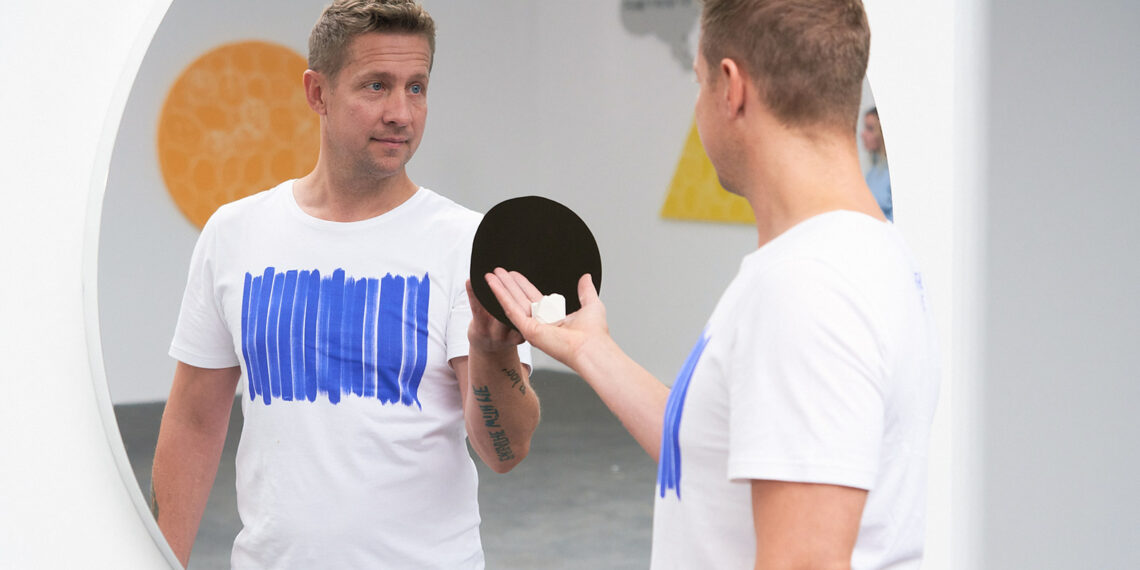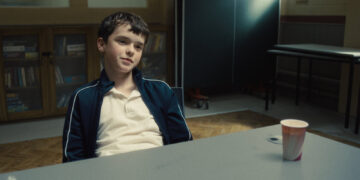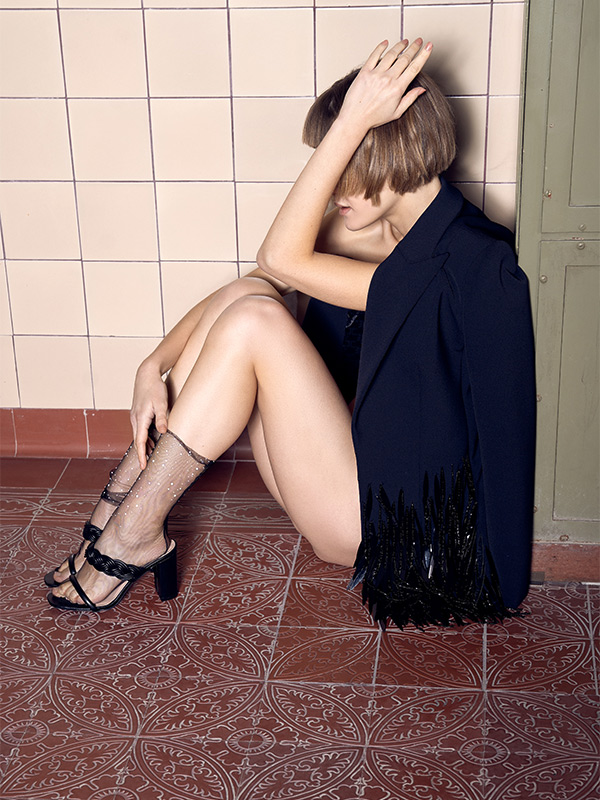Art and pleasure – they simply belong together. This is why Ruinart awards its Carte Blanche to an artist every year, who is allowed to draw inspiration from the history of Maison Ruinart and the production of the famous champagne. In 2022, the choice fell on Jeppe Hein, whom FACES met at Art Basel for his installation RIGHT HERE, RIGHT NOW.
Interview: Mirco Ludolini
FACES: Smörrebröd or stecke flesk?
Jeppe Hein: Smörrebröd. I don’t eat that much meat.
F: Berlin or Copenhagen?
Jeppe Hein: (hesitates…) Berlin.
F: Favorite music?
Jeppe Hein: It’s difficult to say, it all depends on the mood. But I really like music and I like to dance.
F: Champagne or caviar?
Jeppe Hein: Champagne.
F: That brings us right to the heart of the matter. How did the collaboration with Maison Ruinart come about?
Jeppe Hein: I was asked if I could imagine a collaboration within the framework of Art Basel. I always have to sense cooperation. Can I spark enthusiasm for it? Would my heart be in it? I am an emotional person, that is very important to me. So I went to Ruinart in Champagne, had a look and was immediately impressed. You feel the heat and the cold in the fields. You smell the scent of the Chardonnay flower, the fresh grapes. Later we went to the Ruinart cellar 30 to 40 meters underground. It was cool and damp. I knew immediately that it was a good fit.
These are the three cornerstones of my work here at Art Basel. The chalk as a counterpart to the stone in the cellar. The scent of the Chardonnay flower and the raisin as a symbol of the grape.
F: Were you a champagne fan before, or did that come with the collaboration?
Jeppe Hein: I’ve always liked champagne, I’m less of a beer and wine lover. But I have to admit that I have learned a lot from working with Ruinart. I thought champagne was champagne. I didn’t realize how many different brands and types there are. Maison Ruinart, for example, has been around since 1729, which means they will be 300 years old in 2029. You have to imagine that.
F: How important is it to you that people can experience your art and not just look at it?
Jeppe Hein: Very important. My work is a tool for communication and dialog. My art comes to life when the visitors become a part of it. With regard to the collaboration with Maison Ruinart at Art Basel, it was important to me that people could experience something in the present. Right here, right now. You should not have to worry about prices and what or whether they should buy something. In the hustle and bustle of the trade fair, my art should serve as relaxation.
F: Art is very different and individual, and it is not always easy for outsiders to understand the popularity of an artist. How do you actually become a well-known artist?
Jeppe Hein: There is basically no recipe for becoming a successful artist. It is primarily a lifestyle that you choose. In my opinion, you shouldn’t make art with the motivation of becoming famous. You have to do it because it’s your passion.
So I can’t give you a general answer, just how it went for me. My start was training as a carpenter. As a dyslexic, higher education was not an option for me at the time. I got into painting through my stepfather. A language without words quickly fascinated me. That way I could express myself emotionally. Later on, I studied art after all.
In my case, success also had a lot to do with luck. It has certainly worked out because I have always believed in myself and do what I love every day. You have to be honest with yourself. I am incredibly grateful that I can now live my life like this.
F: You are a passionate artist. You also have four children and a wife. The profit from your art also plays a role somewhere, doesn’t it?
Jeppe Hein: You’re right, of course. I have a responsibility towards my family. I also have a responsibility towards my 20 employees. I have a cook, two accountants, engineers and architects. But my wife also knows that I’m not afraid of working as a carpenter again one day. We live our lives and enjoy them. If one day our success in art comes to an end, then we will find something else.
Either way, I am very grateful for the life I am allowed to live. I am privileged and so is my family. I keep reminding myself of that. I also support a lot of young artists and try to give something back as best I can. I also received a lot of help in the past, which is very important to me.
F: How much of your success do you think is due to art and how much is due to marketing?
Jeppe Hein: Sooner or later you will need professional and financial support to get to the next level. In my case, Johann König’s gallery helped me tremendously back then. He was 19 years young and came from a family of artists. He firmly believed in me, and together we made a name for ourselves.
F: How important is social media for you? Do you enjoy doing this, or is it more a means to an end?
Jeppe Hein: I only became active on social media very late. I was never really interested in it at first. Later, however, I realized that I could use it as a creative tool. I don’t necessarily have to focus on myself, but on my art. I can also use it to give wonderful impressions from behind the scenes. People are always very interested in that. Especially during Corona, I also did live breathing exercises every Wednesday and encouraged people to join in. That worked really well.
It is certainly important to me that I give people a realistic insight into my art. I try not to make myself look better or represent something that I am not.
F: What advice would you give to an aspiring artist?
Jeppe Hein: Always try to challenge your creative process. Do not stay in one medium. With color, metal, ceramic, graphic, etc. That way you can develop better. People should also work together much more. So also creating art together and then exhibiting it together. You learn an incredible amount that way and you develop as an artist and as a person.
F: What’s it actually like as an artist, do you want to keep getting better and more successful like an athlete, or is the thought process and motivation different?
Jeppe Hein: In my opinion, we are the same. I had a lot of ambition and a clear plan, especially in my early days. But you can also overdo it. Today I like to give a lot in my art. I am pleased to realize that I then get this back a thousandfold. In the meantime, I am more interested in working together than in personal success.
F: Last question, is it true that Danes don’t like small talk?
Jeppe Hein: (laughs) No, no. It just depends a bit. In general, however, we Danes are certainly people who like to go a little deeper. Is that small talk for you now?
F: No, this is an interview. (both laugh)
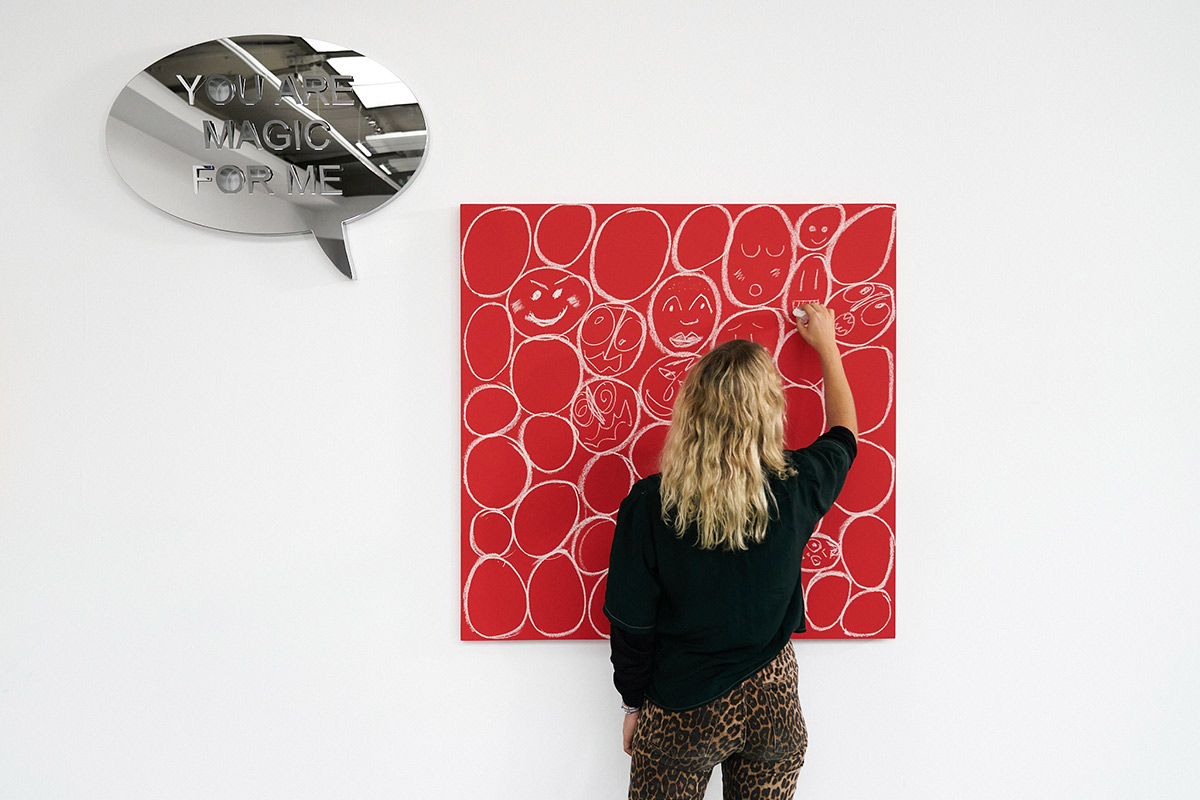
©Strempel Photography
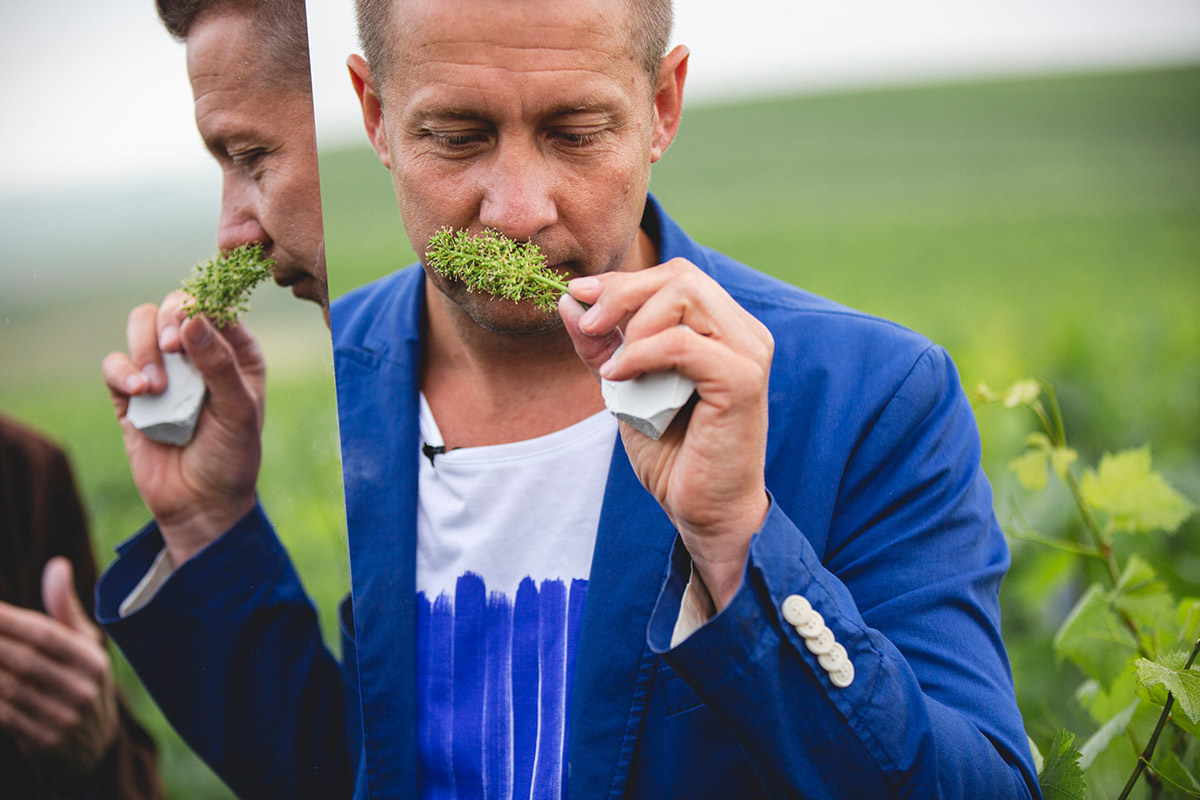
Mathieu BONNEVIE
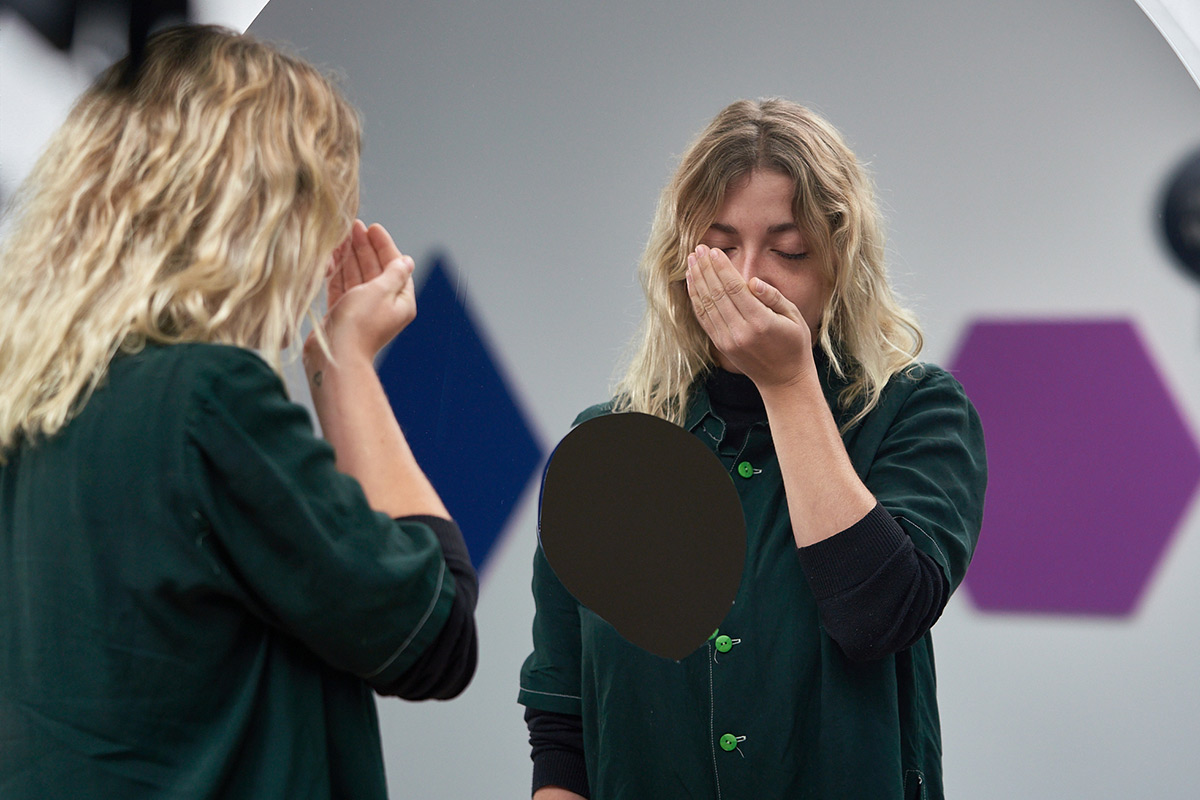
©Strempel Photography


